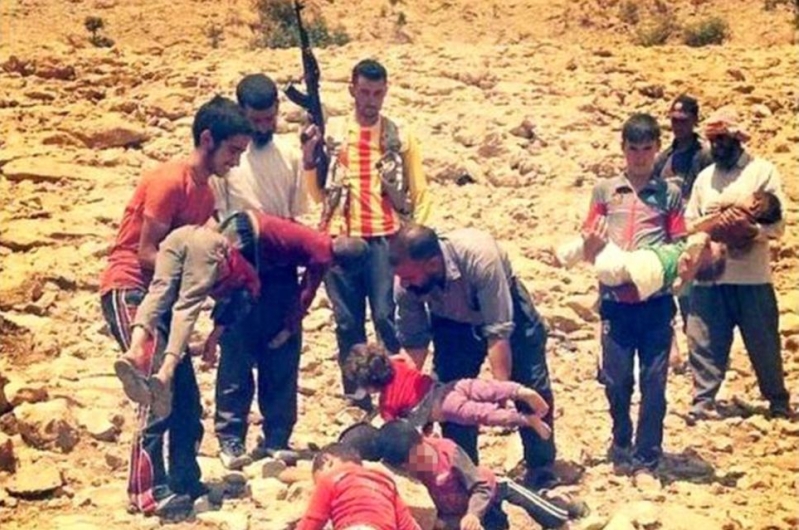
As ISIS continue to engage in grave human rights violation against Christians in Iraq and Syria, many were wondering why the United States would not use the word "genocide" to describe the Islamic State militant's extreme actions. While ISIS has clearly stated its intention to remove all Christians from their self-declared "caliphate", critics claimed that the Obama Administration do not see it as a form of genocide.
Last May, ISIS Leader Abu Bakr al-Baghdadi released a video wherein he stated clearly his plan of eradicating all people who would identify as Christians, using all means possible. He added that the co-existence of Muslims with Jews and Christians is impossible to happen, based on the Quran. The group has already started its plans on Iraq as early as June 2014, capturing Mosul and Qaraqosh and forcing Christians to flee their homes, if not abused or killed.
Assyrian International News Agency claimed that as long as the world refuses to see these atrocities as genocide, Christians forced to relinquish their faith and their lives would never achieve the justice they deserve. The agency is also questioning why Obama Administration would not use the word to describe what is transpiring. The agency believes that by doing so, the international community can be mobilized to help the victims and prosecute the perpetrators of "war crimes and crimes against humanity."
In June of 2014, the terrorists entered northern Iraq and captured the city of Mosul. Under their reign, Christians were targeted. Christians are removed from public positions and not allowed to use public services. Christians were also removed of necessary rations. The plan was to force them to "convert and pay the jizya tax." Refusal would lead to death.
Within 24 hours of capture, Mosul's Christian population fled their homes. After 1,600 years of Christianity in Mosul, ISIS managed to drove all the Christians away. Christians were not allowed to possess anything, with the terror group getting everything they own. They were only allowed the clothes they were wearing.
After the Christians left, ISIS confiscated, demolished, and turned churches and monasteries into mosques. All traces of Christian history in the city are now gone.
ISIS targeted nearby Qaraqosh next, which had the largest Christian population in Iraq. Residents who were not able to flee were put into different buses and set out of the territory. They forced some women behind for themselves.
The severity of what is happening in Iraq might actually be lost to those in other nations, largely because of lackluster international coverage. Following accounts of displaced Christians in Iraq, a Spanish filmmaker planned to document the abuse Iraqi Christians received. Alfredo Panadero plans to make the documentary "Guardians of Faith" with five of his colleagues. Their group spent three weeks in Iraq's Kurdish region interviewing refugees. The filmmaker expressed that the issue lacks proper international media coverage. " I think that the issue is not sufficiently reported by international media outlets and what is reported is very superficial and doesn't do justice to the current situation," he said.






